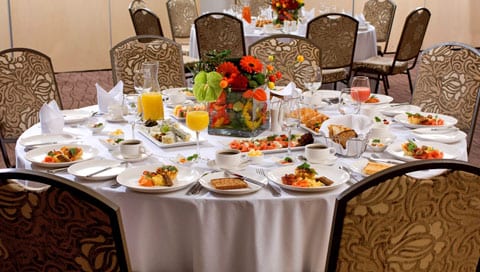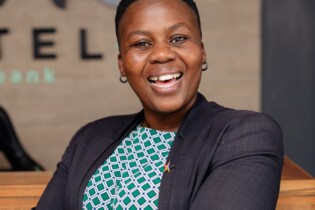Set in the heart of the Cape Town CBD, the Townhouse Hotel & Conference Centre has established itself as a first-choice destination for conferences, product launches, functions and banquets.
Theoné Williams, Conference Manager at the Townhouse Conference Centre, has helped a broad range of clients to host memorable conferences at the hotel. “Successful event planning requires some key skills, such as great time management, resourcefulness, solid communication skills and a level head. But there are also some tried and tested tips that can assist event planners to host successful conferences time after time.”
Williams has picked up well-earned experience in dealing with all the subtleties of great event planning and offers her top tips to ensure a successful conference experience for all delegates:
Set objectives – Williams prefers an outcomes-based approach to event planning. “It’s critical that the objectives of the event are determined at the outset. The objectives will largely guide the choice of venue, speakers, and additional activities, all of which have an impact on how the event is planned.” Williams says that objectives could include training of new staff, the introduction of a new product or service, sharing of new ideas, or rewarding top-performing employees. “I usually sit with my clients and we go through exactly what they want to get out of the conference before any planning takes place.”
Plan well – organising a conference is a highly complex process requiring event planners to take into account a huge number of aspects. “Without proper planning, you are almost ensured of failure. There is usually so much to do in the lead up to a conference that you need a strong, comprehensive plan to work from or you run the risk of forgetting vital elements of the event. You need to ensure your venue is sufficient to meet the needs of the conference, that you have great catering, and a million other things.” Williams recommends creating a project timeline with clear indications of when activities need to be completed and to ensure all involved are regularly updated.
Be prepared – while proper planning is essential for successfully organising a conference, it’s important to always be equipped deal with any unexpected issues that may crop up. Williams says she keeps an ‘emergency kit’ with useful items to help her deal with last-minute problems. “I always have a tool box containing stationery extras such as staplers, paperclips, and scissors, as there always seems to be a need for these items at some point. I also keep a list of backup suppliers, in case a supplier doesn’t deliver.” Williams says she caters for slightly more people than are expected, and keeps the back row of the conference venue open for last minute delegates.
Communicate consistently – this is a vital component to the success of the conference. “Arrange any marketing and PR activity such as branding, a dedicated website and welcome literature for delegates well in advance, and communicate via these channels on a consistent basis so that delegates always have up to date information about the event.” Depending on the nature of the audience and whether they are active on social media, Williams also recommends using platforms such as Facebook and Twitter to engage with delegates both before and during the event.”
Williams has one last word of advice: “As long as event planners take into account all the factors that could influence the planning of their conference or event, build in contingencies, and communicate any changes or updates effectively, delegates are far more likely to have a seamless and enjoyable and memorable experience,” she finishes.







